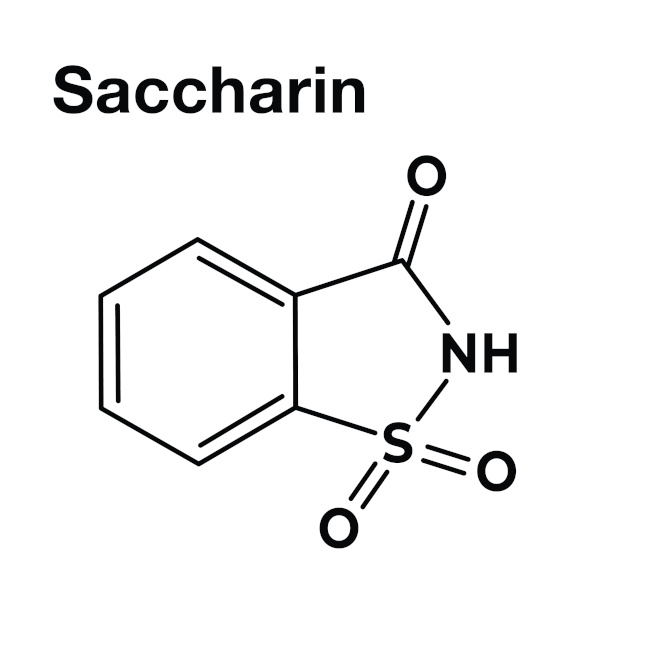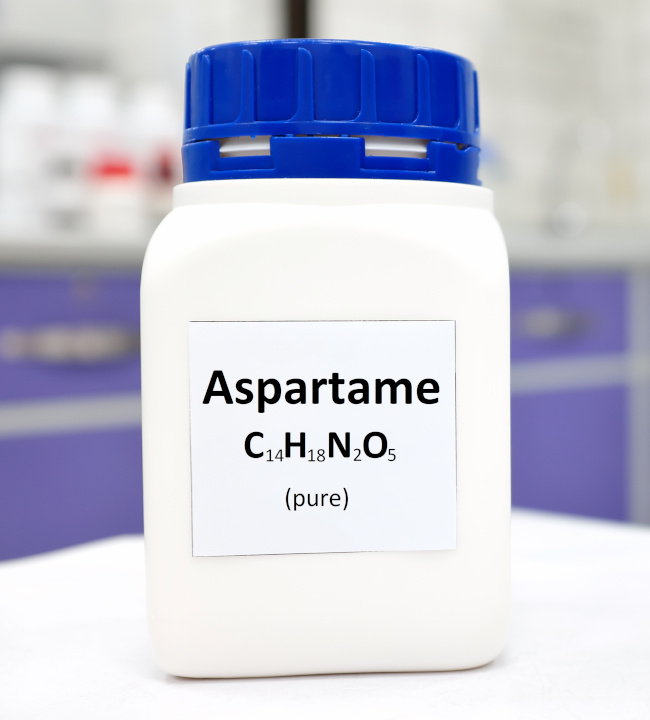We do not use artificial sweeteners in any of TORQ’s products – we have always been firmly opposed to their use. Recently the World Health Organisation made an official statement raising fresh concerns about their safety.
For decades, artificial sweeteners have been touted as a healthier alternative to sugar, promising to satisfy our sweet cravings without the calorie burden. However, these sugar substitutes have found themselves at the centre of a heated historical controversy. As their popularity soared, concerns arose regarding their safety and potential health risks, leading to ongoing debates among scientists, health experts, and consumers. Recently, the World Health Organisation (WHO) issued a statement urging caution over their use due to potential links to cancer. Let’s delve into the history of this controversy and understand the significance of WHO’s latest warning.
The Emergence of Artificial Sweeteners
The journey of artificial sweeteners began in the late 19th century when saccharin, the first commercially available sweetener, was accidentally discovered by Constantin Fahlberg, a chemist working on coal tar derivatives. It was followed by aspartame in the 1960s, sucralose in the 1970s, and various others in subsequent years. These sweeteners quickly gained popularity due to their intense sweetness, calorie-free nature, and appeal to individuals with diabetes and those seeking to manage their weight.

Early Safety Concerns
As artificial sweeteners began to infiltrate the market, so did concerns about their safety. Saccharin faced one of the earliest controversies when studies conducted on rats in the 1970s suggested a potential link to bladder cancer. As a result, the U.S. Food and Drug Administration (FDA) mandated warning labels on products containing saccharin, raising public alarm about the safety of artificial sweeteners.
Despite these concerns, more research was conducted, and it was later considered that the mechanisms responsible for bladder cancer in rats were not relevant to humans. The warning labels were removed, but the damage to the public perception had already been done, leading to an air of skepticism surrounding artificial sweeteners.
Aspartame: The Centre of the Storm
Of all the artificial sweeteners, aspartame has been the most controversial and studied. Approved for use by the FDA in the 1980s, aspartame quickly became a key component in various sugar-free products. However, it soon became a centre of public concern due to reports of adverse reactions and claims linking it to various health issues, including headaches, dizziness, and even cancer.
The FDA and other regulatory agencies worldwide have repeatedly reviewed the safety of aspartame, consistently concluding that it is safe for consumption at levels within acceptable daily intake limits. Yet, public perception remained divided, and the controversy over aspartame persisted.

Recent Studies and the WHO Statement
As scientific knowledge advanced, researchers continued to explore the effects of artificial sweeteners on health. In recent years, a growing body of evidence suggested that artificial sweeteners might influence metabolism, appetite regulation, and even glucose tolerance. Some studies indicated that they could lead to glucose intolerance and disrupt the body’s ability to manage blood sugar levels, potentially increasing the risk of metabolic disorders like type 2 diabetes.
Moreover, several studies conducted on animals and some limited human studies raised concerns about the potential links between artificial sweeteners, particularly aspartame, and an increased risk of certain cancers. These findings were significant enough to prompt the World Health Organisation’s International Agency for Research on Cancer (IARC) to revisit their safety assessment.
In a recent statement, the WHO urged caution over the use of artificial sweeteners and highlighted the need for further research into their potential health effects, particularly regarding their links to cancer. The WHO’s classification of artificial sweeteners as “possibly carcinogenic to humans” indicates that there is limited evidence suggesting their cancer risk, and more studies are required to establish a clearer understanding.
Understanding the Mechanisms
Researchers have been exploring several potential mechanisms that could explain the observed links between artificial sweeteners and cancer risk:
Metabolic Effects: Artificial sweeteners do not provide calories like sugar does, but they can still influence metabolism and the body’s response to glucose. Altered metabolic pathways may, in turn, affect cell growth and proliferation, potentially contributing to cancer development.
Gut Microbiota: Emerging research has shown that artificial sweeteners can influence the composition of the gut microbiota, the trillions of microorganisms living in our intestines. Changes in gut microbiota have been linked to various health outcomes, including cancer.
Formation of Harmful By-products: Some artificial sweeteners can break down into potentially harmful by-products when exposed to heat or other food processing conditions. These by-products have raised concerns about their impact on health.
Appetite Regulation: There is evidence to suggest that artificial sweeteners might disrupt the body’s natural appetite regulation mechanisms, leading to increased food intake and potential weight gain. Obesity, in turn, is associated with an increased risk of certain cancers.
The Surge in Sweeteners & The Type 2 Diabetes Epidemic
Due to lifestyle factors and poor nutritional practices, Type 2 diabetes has become a big problem in the developed world and this has led to recent government initiatives in the UK such as the ‘sugar tax’ and a general drive for people to consume less sugar. At the same time, this has resulted in soft drinks manufacturers removing sugar from their beverages and adding artificial sweeteners.

We wouldn’t call this a perfect storm by any means, but given the WHO’s recent statement, it does create a bit of a conundrum and it’s probably one that government policymakers have been well aware of for some time. Which is the lesser of two evils? The answer is that it depends who you are. If you’re sedentary and overweight, you really should be reducing your calorie intake and moderate artificial sweetener use could form a useful part of that process. For these people, on balance, moderate intake of artificial sweeteners could be a better choice than sugar, although as mentioned above, there are some studies that suggest artificial sweeteners themselves could drive Type 2 diabetes and increase appetite? We can only conclude that people fitting this demographic should consider other forms of calorie control like for instance simply eating smaller portions, snacking less and making healthier food choices. At TORQ we have also always felt that exercise simply isn’t prioritised enough by the authorities and that ‘calorie control’ seems to be their overriding narrative. Regular exercise won’t just address a person’s energy balance, it will deliver wide-ranging physical and psychological health benefits.
If you’re a physically active fit person and you’re slim, there really is no conundrum – choose sugar over artificial sweeteners every time. Fuelling your physical activity without sugar/carbohydrate will bring its own set of performance issues (take a look at the TORQ Fuelling System page if you’re in any doubt). You’re also at very low risk of developing Type 2 diabetes or metabolic problems because of the exercise you do. This is not to say that you shouldn’t be making healthy food choices, but the regular exercise you do along with good weight management will protect you. We are somewhat of an authority on this, because we have had to learn a huge amount about diabetes whilst developing our NHS prescription hypo gel. If you’re interested in learning about why athletes and physically active people are protected from Type 2 diabetes, please read the tabs at the bottom of our diabetes products page.
We need to make it clear at this point that people with Type 1 diabetes do have a genuine conundrum and we would argue that moderate artificial sweetener intake certainly would be the lesser of two evils, because in many cases sugar really isn’t an option.
TORQ’s Natural & Organic Policy
Aside from the controversy surrounding artificial sweeteners, it’s simply not within TORQ’s ideals and ethos to use ingredients that aren’t natural. Many of TORQ’s products are certified organic by the Soil Association and as well as refusing to use artificial sweeteners, we do not use colours of any kind and our flavours are natural, not synthetic. Please use TORQ products with confidence.

The reason TORQ have never produced an electrolyte tablet has at least in part been due to the need for artificial sweeteners in these products (you can’t make a tiny tablet sweet in 500ml of water without using a sweetener). We actually wrote about this in 2013! Fortunately, avoiding the use of artificial sweeteners led us to develop the functionally superior TORQ Hydration Drink, so every cloud certainly has a silver lining. Unfortunately there are many other brands in the Sports Nutrition space still using artificial sweeteners.
Conclusion
The controversy surrounding artificial sweeteners has been a long and complex one, with proponents praising their potential to reduce sugar consumption and manage weight, and sceptics voicing concerns about their safety and potential health risks. While regulatory agencies have consistently deemed artificial sweeteners safe for consumption within recommended levels, recent studies have raised questions about their impact on metabolism and potential links to cancer.
The World Health Organisation’s recent statement advocating caution regarding artificial sweeteners serves as a reminder that our understanding of these sugar substitutes is not yet complete. As the scientific community continues to conduct further research, consumers are encouraged to use these sweeteners in moderation and opt for natural alternatives when possible. Striking a balance between satisfying our sweet tooth and safeguarding our health remains crucial in navigating this historic and ongoing controversy.
For people with a sedentary lifestyle suffering with obesity, it could be argued that artificial sweeteners are the ‘lesser of two evils’ when compared to sugar consumption, although even this now seems to be up for debate. This certainly isn’t the case for athletes and physically active people who use carbohydrate to fuel their activity and are naturally protected from Type 2 diabetes and other metabolic illnesses.
For WHO’s meta-analysis on artificial sweeteners, click on the link below:
Health effects of the use of non-sugar sweeteners: a systematic review and meta-analysis
For WHO’s full guidance, click on this link:
Use of non-sugar sweeteners: WHO guideline
If you have any questions about this article or any other subject, please don’t hesitate in contacting us at enquiries@torqfitness.co.uk or phone 0344 332 0852.






